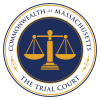- Trial Court Law Libraries
A hate crime is a crime that is motivated by bigotry. See our earlier blog post about hate crime in Massachusetts.
Hate speech is defined by Black’s Law Dictionary (10th ed., 2014) as: “Speech that carries no meaning other than the expression of hatred for some group, such as a particular race, esp. in circumstances in which the communication is likely to provoke violence.” However, hate speech by itself is not a crime in the United States.
The First Amendment of the U.S. Constitution guarantees the right to freedom of speech and the press. There is no “hate speech” exception to the First Amendment in the U.S. Constitution.
[*The equal protection clause of the Fourteenth Amendment clarifies that this applies to all the states.]
Nevertheless, the right to free speech is not absolute. The U.S. Supreme Court has ruled that certain types of speech are NOT protected by the Constitution. In the 1942 case of Chaplinsky v. New Hampshire, 315 U.S. 568, 572, 573 (1942), the U.S. Supreme Court summarized the case law: “There are certain well-defined and limited classes of speech, the prevention and punishment of which have never been thought to raise any Constitutional problem. These include the lewd and obscene, the profane, the libelous and the insulting or ‘fighting’ words – those which by their very utterance inflict injury or tend to incite an immediate breach of the peace.” “Fighting words” are furthermore construed to mean words directed at a specific individual, in a face to face confrontation, likely to lead to immediate violence. Since 1942, however, no hate speech cases that have been brought before the U.S. Supreme Court have been found to include “fighting words”.
Two important court cases clarify the law about hate speech. First, in the 1992 case R.A.V. v. City of St. Paul , 505 U.S. 377 (1992), the U.S. Supreme Court struck down as unconstitutional a city ordinance that prohibited cross-burning (as a form of disorderly conduct). The defendant R.A.V. had burned a cross on the lawn of an African-American family. The court ruled that the First Amendment protects free speech, including free expression by use of symbolism, such as a burning cross, Nazi swastika, or other symbols; the law cannot prohibit free expression based on content, even when it is offensive to others. Secondly, in the 1993 case of Wisconsin v Mitchell, 508 U.S. 476 (1993), the U.S. Supreme Court held that a defendant’s First Amendments rights were not violated by the application of a Wisconsin statute that increased his sentence for aggravated battery because he intentionally selected his victim based on the victim’s race. Mitchell was among a group of young black men who were angry after seeing the movie Mississippi Burning, in which several blacks are beaten. A white boy happened to walk by, and Mitchell and the others attacked and beat the boy so severely that they put him in a coma.
Hate speech therefore finds its place in the legal system as a proof of hate crime, and may be used in enhancing the sentence for a crime.
The Bureau of Justice Statistics web page on hate crime states: “For a crime to be classified as a hate crime… the victim must report at least one of three types of evidence that the act was motivated by hate: the offender used hate language, the offender left behind hate symbols, or police investigators confirmed that the incident was hate crime.”
Hate speech may be a part of a pattern of harassment, which is illegal. See Massachusetts Law About Harassment.
According to the ruling in Commonwealth v. Welch, 444 Mass. 80 (2005) harassing speech or conduct does not qualify as protected speech; and in order to qualify as harassment, there has to be a pattern of at least three separate events.
Hate speech is a complicated issue, but the resources of the Massachusetts Trial Court Law Libraries can help explain the nuances involved in this topic. The law libraries have books on civil rights, free speech, and hate speech, including the following:
- Hate crimes law, Thomson/West, 2019.
- First Amendment law in a nutshell, by Jerome Barron and C. Thomas Dienes, Thomson/ West 4th ed., 2018.
- Beyond the burning cross: the First Amendment and the landmark R.A.V case, by Edward J. Cleary, Random House, 1994.
- Campus hate speech on trial, by Timothy C. Shiell, University Press of Kansas, 2009.
- Words that wound: critical race theory, assaultive speech, and the First Amendment, by Mari J. Matsuda, et al., Westview Press, 1993.
- Freedom of speech and the press: exceptions to the First Amendment, by Henry Cohen, Congressional Research Service, Library of Congress, 2006.
- Freedom for the thought that we hate: a biography of the First Amendment, by Anthony Lewis, Basic Books, 2007.
- The context and content of hate speech: rethinking regulation and responses, edited by Michael Herz & Peter Molnar, Cambridge University Press, 2012. This book has many thoughtful articles about hate speech and what to do about it, not only in the U.S., but internationally and in the specific historical contexts of various nations.
Written By: Gary Smith
